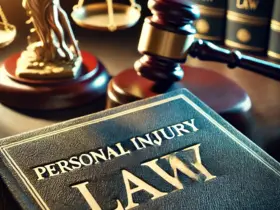Key Takeaways:
- Understand the immediate steps to take following a maritime injury.
- Learn about your rights and the importance of documentation.
- Know when and why to seek medical and legal help.
- Ensure your safety and well-being throughout the recovery process.
Table of Contents:
- Introduction
- Initial Response to a Maritime Injury
- Consult Legal Advice
- Seek Medical Attention
- Document the Incident
- Understand Your Rights
- Focus on Recovery
- Conclusion
Introduction
Working in the maritime industry can be both rewarding and risky. Accidents at sea are unique due to the distinct environment and can pose serious challenges for those involved. Knowing what to do after a severe injury is crucial for your recovery and future well-being. This guide provides a clear roadmap for maritime workers facing such situations, ensuring their safety, rights, and health are prioritized.
Initial Response to a Maritime Injury
Immediately after sustaining a maritime injury, your foremost concern should be safety. If the injury permits, remove yourself from any immediate danger. Notify your supervisor or the vessel’s safety officer as quickly as possible. This initiates the response protocol and implements the necessary safety and first-aid measures.

It’s essential to maintain your composure and clarity during this phase. Take note of your surroundings and any factors that might have contributed to the incident. This information can be invaluable later on. If you cannot document the scene, seek assistance from colleagues or the designated safety personnel.
Consult Legal Advice
After sustaining an injury, consulting with an attorney experienced in maritime law is crucial. These legal professionals specialize in cases like yours and can offer indispensable guidance regarding your rights, potential claims, and the process of filing them. Engaging with an expert helps demystify the complexities of maritime law, ensuring that you take the correct legal steps.
For those in need, seeking out New Orleans maritime attorneys or similar professionals can provide the essential support needed to navigate these legal waters. Remember, prompt legal consultation can impact the outcome of your claim significantly, so don’t delay seeking advice.
Seek Medical Attention
After attending to initial safety concerns, obtaining a medical evaluation is paramount. Even if an injury seems minor, some symptoms can manifest later due to adrenaline or delayed shock. Prompt medical attention ensures that injuries are properly assessed and treated, preventing complications.
Onboard medical facilities can provide initial care, but a thorough evaluation by a professional is necessary as soon as possible. In some cases, evacuation to the nearest port equipped with medical infrastructure may be required. Following the prescribed medical procedures ensures that you receive the appropriate care and establishes a record of the injury.
Document the Incident
The importance of meticulous documentation must be balanced. Accurate records will be the foundation for future claims or legal actions. Write a detailed account of the incident, including the date, time, location, circumstances, and any witnesses. Photographs of the injury and the scene can significantly support your account.
Obtain copies of medical reports and treatment records; these documents will be critical if legal steps become necessary. The vessel’s log should also reflect the incident, and it’s wise to verify that all details are correctly recorded.
Understand Your Rights
Under maritime law, maritime workers have specific rights that protect them in the event of injury. Understanding these rights is critical for ensuring fair treatment and potential compensation. Naval laws safeguard workers by enabling them to seek compensation for injuries caused by negligence.
Knowledge of your rights empowers you to make informed decisions throughout recovery. These rights encompass financial compensation, medical care, and a safe working environment. Awareness of these entitlements ensures you are adequately supported during this challenging time.
Focus on Recovery
Another key aspect of recovering from a maritime injury is prioritizing health and recovery. Adhering to the medical advice prescribed is essential for recovery and may be critical if legal proceedings occur. Follow medical treatment plans diligently and attend all follow-up appointments.
In addition to physical recovery, consider the mental and emotional toll that an injury can bring. Seeking the support of a counselor or therapist may be beneficial. Lean on family, friends, or professional networks to promote a positive and healthy recovery environment.
Conclusion
Experiencing a maritime injury is undoubtedly challenging, but knowing how to handle the situation can significantly impact your recovery and future well-being. Ensuring safety, seeking immediate medical attention, documenting the incident, understanding your rights, obtaining legal advice, and focusing on your recovery will pave the way for a smoother path to rehabilitation. Stay informed and proactive to safeguard your health, rights, and future in the maritime industry.



